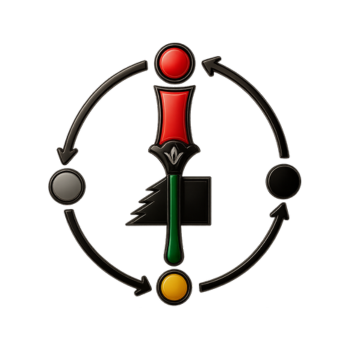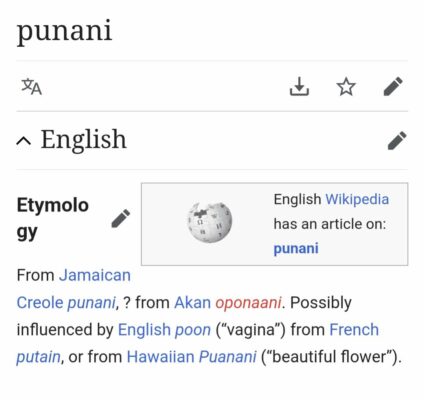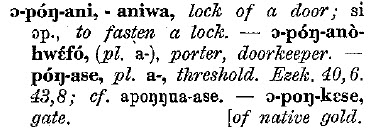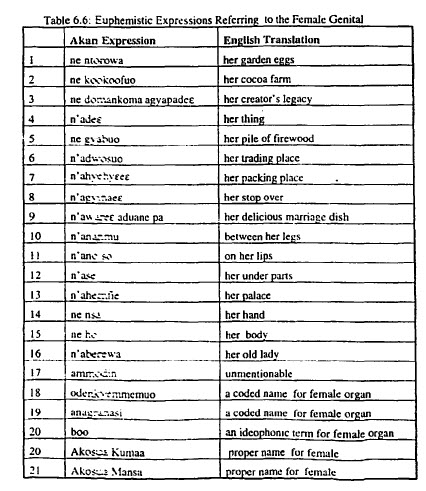-
Very random question for Akan speakers/Linguists. 👀
Is anyone able to verify the existence of the word “oponaani” and it’s meaning in Akan?
12 Comments-
Same… But I am thinking because Akan includes more than just Twi, it may be another Language/Dialect
-
 119,818
Abibisika (Black Gold) Points
119,818
Abibisika (Black Gold) Points
-
-
 119,818
Abibisika (Black Gold) Points
119,818
Abibisika (Black Gold) Points
Christaller, J. G. (1933). A Dictionary of the Asante and Fante Language called Tshi (Twi). Basel Evangelical Missionary Society., p. 400.
-
 119,818
Abibisika (Black Gold) Points
119,818
Abibisika (Black Gold) Points
Yɛnni aseda o!
-
🙏🏿
-
-
-
-
-
-
Somewhat relevant,
Mi did a write a likkle Ting bout *ḤꜢt=f* in Nana Ptah-Hotep’s Sebayit, specifically number 32
“ḤꜢty=f” “im front” – the phrase ḤꜢty “front” is a synonym for pum-pum in the context of passage.
I heard once in a convo that was something similar to “front” in Ki-Kongo i think (but I can’t recall the specifics)
Wondering if this is in Akan as well-
Mmmm… @taharka2018 well if we take what @obadelekambon has shared the implication is the same. “Door” “threshold”…
Although it doesn’t appear to be in the list of words for female genitalia recorded by those who compiled the dictionary. So it’s possible that this specific usage is diaspora evolution.
-
 119,818
Abibisika (Black Gold) Points
119,818
Abibisika (Black Gold) Points
The idea is more of the lock definition with the implication that the man has the key. It’s a straightforward euphemism that seems consistent with others.
-
Ah. That was my original conclusion. But then I was reading in context with the other “Opon…” Words and the idea that the consistent thread is “Door” or “Gate” etc… Began to consider it differently.
Thanks for the clarification.
I have ordered the dictionary also…
-
@obadelekambon Do you know if Ki-kongo has “front” term for vagina (or any other Bantu languages)? lost track of my source for that, though I do believe it was supposed to be in Ki-kongo or immediately related language.
-
-
-
-
 119,818
Abibisika (Black Gold) Points
119,818
Abibisika (Black Gold) Points
Agya @kevlew, the word is ɛtwɛ, but that word is considered a verbal taboo and people are not to use it in the vast majority of context, but rather to use the whole host of euphemisms that exist. Ɔpanin Kofi Agyekum’s work on Akan Verbal Taboos goes into euphemisms for body part terms, dangerous animals, sicknesses and more.
-




